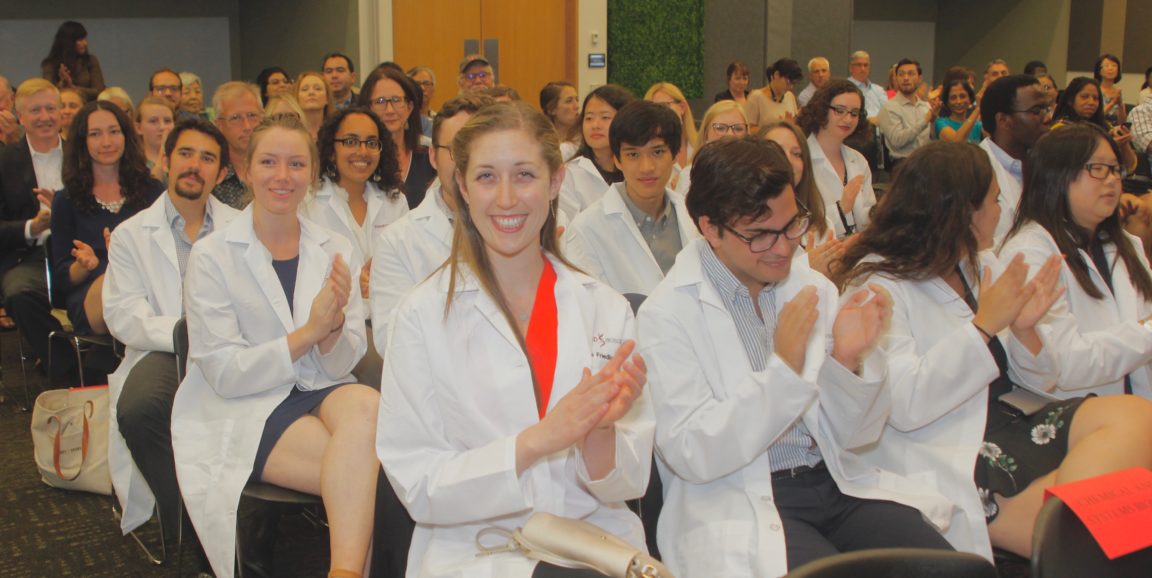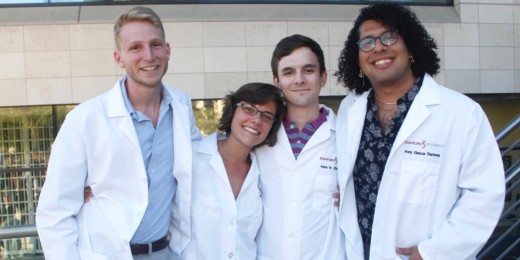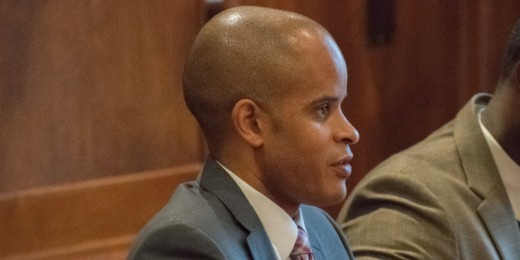David Bilder, who earned a PhD in developmental biology at Stanford in the 1990s and is now a professor of cell and developmental biology at the University of California, Berkeley, returned to campus to deliver remarks at our recent lab coat ceremony. He welcomed incoming Stanford Biosciences graduate students with these words.
When I heard about this ceremony, my first thought was, this is the kind of ritualistic mysticism that med students might go for, but not grad students. Are we going to have you recite a biologist's version of the Hippocratic oath? Like, 'Thou shalt not use a t-test on data that's not normally distributed'?
But on reflection, I can see real value in this ceremony. Not in "ordaining" you into an intellectual profession -- some of you have been functioning as scientists for many years. But the similar garb serves to remind you that you are now joining a community.
Community is not an instinctual value for many scientists. We're perhaps a bit more individualistic than the average person, and indeed in research, many times when it comes right down to it, it is just you and the bench -- maybe in the corner of a lab late at night, losing track of the outside world and trying to figure out with your thoughts and experiments what nature is really telling you.
But even in those times -- some of which are wonderful, but many of which, as a trainee, are frustrating -- knowing that you are part of a larger community is a profound experience.
Those circles of community extend -- from the classmates you see around you today, to your colleagues at Stanford and all the other scientists throughout the world. Just by being a biologist, you get to participate in the amazing discoveries that are constantly occurring, even if you at this particular moment may not be the one who is making them.
During my grad school days here, I vividly recall the day my labmate returned from the C. elegans meeting to excitedly data-dump a talk from Andy Fire [Stanford professor of pathology and of genetics] revealing the astonishing discovery of RNAi; it was immediately clear that it would revolutionize the way that research would go forward. I also recall following the exciting updates from Pat Brown's and Ron Davis' labs [professor of biochemistry, emeritus; and professor of biochemistry and of genetics] as the first microarrays were developed, opening up the "omic" era with an entirely new scale of inquiry and ambition.
I have friends who are chemists and physicists -- maybe some of you do too -- and the tumult and energy in biology are incomparably greater than in those disciplines. You are truly entering a spectacular field that is continuously revolutionizing itself, and is going to be unimaginably more interesting than you can anticipate when you start.
So, if you choose, a life in this kind of science starts now. Your mentors today will become your collaborators tomorrow. And your classmates will become your colleagues.
If your experience is like mine, it is these classmates who will become your closest friends, sharing both your everyday blunders and struggles as well as your moments of inspiration, elation and revelation. And it is these classmates who, much more than your principal investigators, will be the people you will seek to amaze.
So as you go forward to join this community, I want to exhort you to commit yourself to uphold its highest ideals: of truth and discovery, irrespective of personal or political agendas or current fads. And also to work to expand this community, promoting opportunity and diversity, and breaking down these absurd legacy ideas about who can and cannot be a scientist.
You're on the doorstep of a wonderful and wonderous life of science, at one of the greatest institutions on the planet. Seize the chance to do ambitious, transformative, risky science knowing that until you succeed, your community will sustain you.
Photo by George Nikitin






